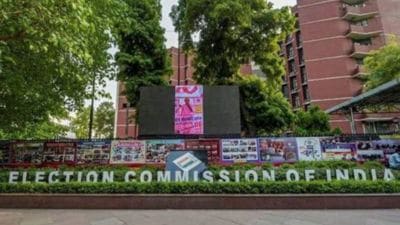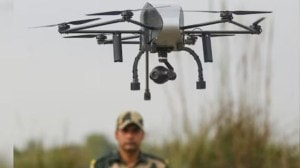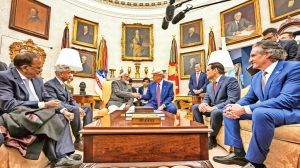Nithari killings: Why were Surender Koli and Moninder Singh Pandher acquitted
In acquitting Surinder Koli and Moninder Singh Pandher — accused of raping, killing and dismembering several minors and a domestic help — the court pointed to a brazen violation of basic norms of collecting evidence.
 Surinder Koli (left) and Moninder Singh Pandher (right)
Surinder Koli (left) and Moninder Singh Pandher (right) Unsatisfactory ‘evidence’, procedural loopholes, improbable possibilities, alleged tutoring and torture — the Allahabad High Court judgment in the Nithari case comes down heavily on both the Uttar Pradesh Police and the CBI’s investigation which began in the mid-2000s.
In acquitting Surinder Koli and Moninder Singh Pandher — accused of raping, killing and dismembering several minors and a domestic help — the court pointed to a brazen violation of basic norms of collecting evidence. But the most crucial of them all was “failure” to probe the “possible” angle of organ trade.
In its judgment, the court noted that the house of the accused was adjacent to one belonging to a doctor who “apparently was a suspect in a case of organ trade (kidney transplant)”. It said that despite specific recommendations made by the high-level committee constituted by the Ministry of Women and Child Development, investigators did not look into the matter, calling it a “betrayal of public trust by responsible agencies”.
The court also pointed to the testimony of a local resident, saying he saw a human hand with flesh covered in polythene when he jumped the wall towards the drain in March 2005 — from where skeletal remains were recovered — to recover a cricket ball. “He claims that on enquiry from elders, he was informed that police had come and assured that there is nothing to worry (about),” the order stated.
While Koli was acquitted in 12 cases, Pandher was acquitted in two cases. Both had been awarded the death penalty in these cases relating to rape, murder, destruction of evidence among other charges by a CBI court in Ghaziabad. In 10 of the cases, Koli was the sole accused while in two cases, he was accused along with Pandher.
Calling the prosecution’s case circumstantial, the court highlighted several procedural lapses.
On arrest
While the defence alleged the arrest was made on December 27, 2006, the prosecution said it was made two days later. The court said the prosecution had failed to prove the circumstance of the arrest and there was no arrest memo on record.
Disclosure statement
The court noted that the accused’s disclosure statement was not placed on record and prosecution evidence regarding the place and time of making the alleged disclosure statement is “full of contradictions”. It is for this reason, the court stated, that discovery of bones, skull, or skeletons recovered from the drain behind the house can’t be placed in evidence.
The sole independent prosecution witness said a large crowd had already gathered at the spot when he arrived, which the court says suggests “some incriminating material had already been found”. The witness also admitted digging at the spot had already started by the time he arrived.
Confession
Calling the failure to comply with requirements of recording confessions “shocking”, the court raised questions about the 60-day-long police and CBI custody for Koli. It said that CBI’s explanation that there were different investigating officers in the 16 separate FIRs lodged against him was “not convincing” and that if Koli had already confessed to the police on December 29, 2006, “there is no reason as to why he was not produced before the Magistrate before March 1, 2007, for recording of his confessional statement”.
“Accused, at the first opportunity, retracted from confession and alleged he was brutally tortured while in police custody. He offered to be medically examined as his genitals were burnt and his nails had been extracted but the accused was not examined medically,” the court said.
“There was no legal aid given to the accused and legal aid given for 5 minutes by the ACMM, Delhi on March 1, 2007, amounts to its denial… no legal aid was given to the accused… at the time when his confession was being video-graphed,” it said, adding that there was no independent corroboration of murder, rape or cannibalism in the confession with other evidence and that the events mentioned in the confession were “highly improbable”.
Slamming the investigators, the court said the “casual and perfunctory manner” in which important aspects were dealt with “is most disheartening.” The court also said it appeared the investigation opted for the easy course of “implicating a poor servant” of the house by “demonising him”, without probing aspects of possible organ trading.
Speaking about Pandher’s involvement, the court noted the evidence, at best, indicated he “lived a promiscuous life and indulged in physical relations with young girls, or would get drunk and enjoy the company of young ladies”. “Apart from it, we find no other evidence on record to implicate him,” the court said.
While Pandher is expected to walk free, Koli will remain in prison as he is serving life sentence in another case related to the killings. His lawyer, Payoshi Roy, said, “… We will approach the SC in the light of this judgment. He has been acquitted on the basis of the same evidence in the 12 cases.”













